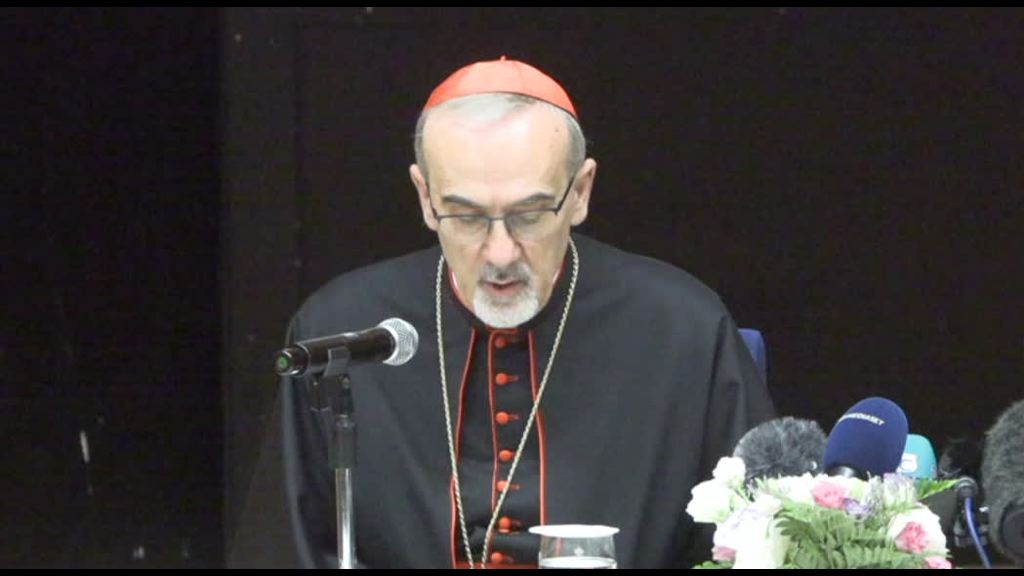Pierbattista Pizzaballa, the Latin Patriarch of Jerusalem, on Tuesday condemned the worsening humanitarian crisis in Gaza as “morally unacceptable,” following a rare visit to the enclave alongside Theophilos III, the Greek Orthodox Patriarch of Jerusalem.
The two church leaders visited the Holy Family Church compound in Gaza City on Friday, days after an Israeli strike on the area killed three people and injured several others, including the local parish priest.
“It is time to end this nonsense and the war,” Pizzaballa told reporters during a press conference in Jerusalem. “Every hour without food, water, medicine and shelter causes deep harm. It is morally unacceptable and unjustifiable.”
Their visit marked one of the very few official foreign delegations to enter Gaza since Israel effectively sealed off the territory following Hamas’s cross-border attack on October 7, 2023, which triggered the ongoing war.
The Christian compound in Gaza City is among the last still functioning, and the church leaders met with members of the increasingly isolated Christian community, now reduced to only a few hundred residents.
Pizzaballa declined to directly endorse the Israeli government’s explanation for the airstrike, which Prime Minister Benjamin Netanyahu had attributed to “stray ammunition.” Netanyahu said Thursday that Israel was “investigating the incident and remains committed to protecting civilians and holy sites.”
“We cannot prove anything,” Pizzaballa said. “But what we saw raises questions.” A Vatican official also voiced skepticism about Israel’s version of events.
On Friday, Netanyahu spoke by phone with Pope Leo XIV. According to the Holy See, the Pope reiterated his call for an immediate ceasefire, the safeguarding of civilians and places of worship, and expressed deep concern over “the dramatic humanitarian situation” in Gaza.
Humanitarian access to the territory has remained heavily restricted since the start of the conflict, exacerbating the food and medical crisis for the civilian population. Pizzaballa called for urgent action to open humanitarian corridors and facilitate the delivery of essential aid.
“We cannot accept a suspension of humanity,” he said. “This is not just a political or military crisis — it is a moral one.”











